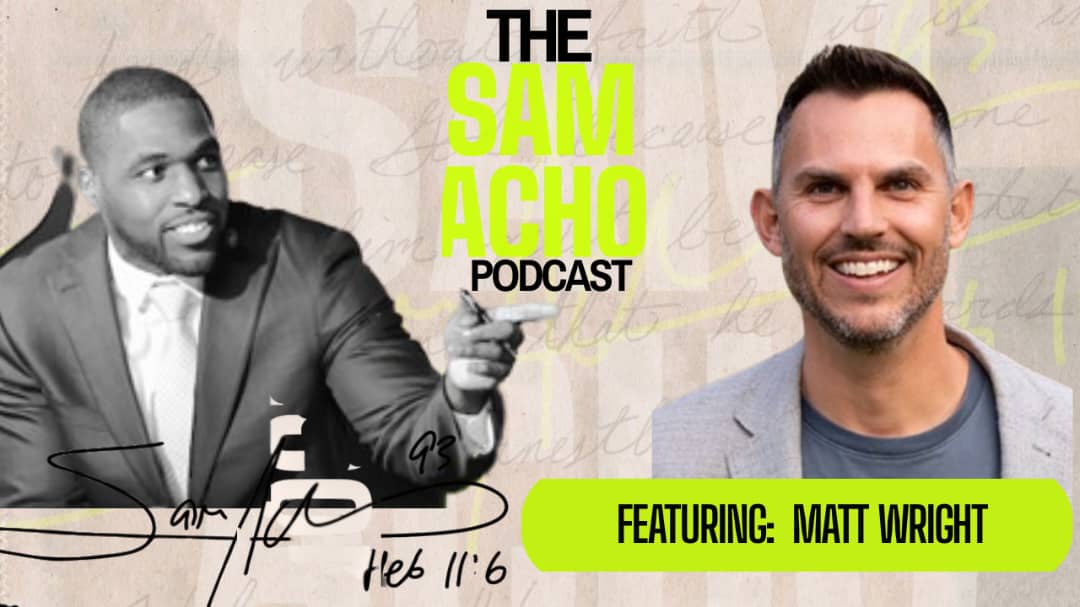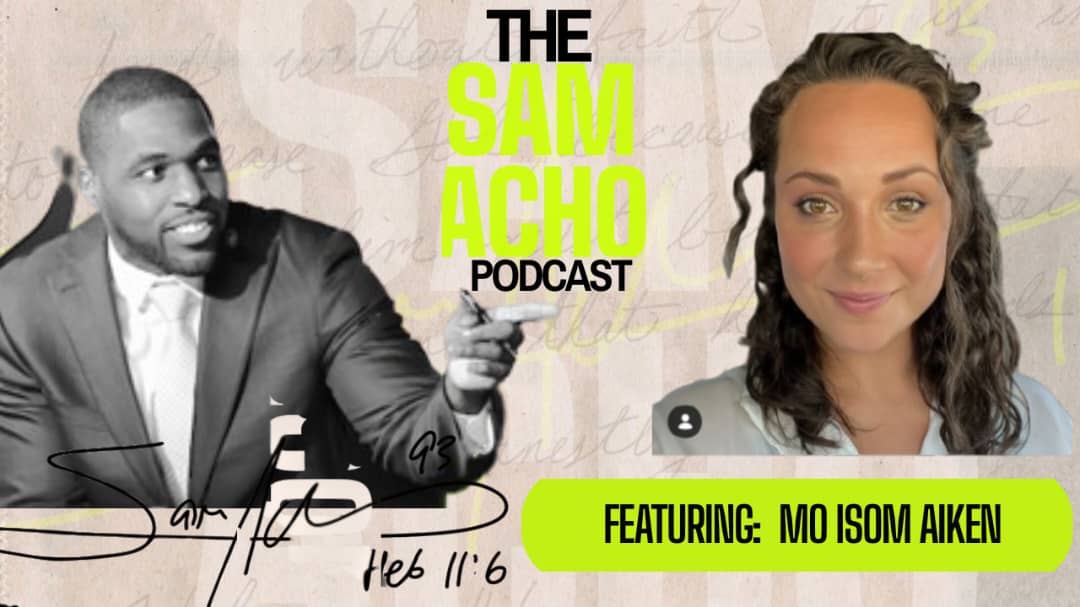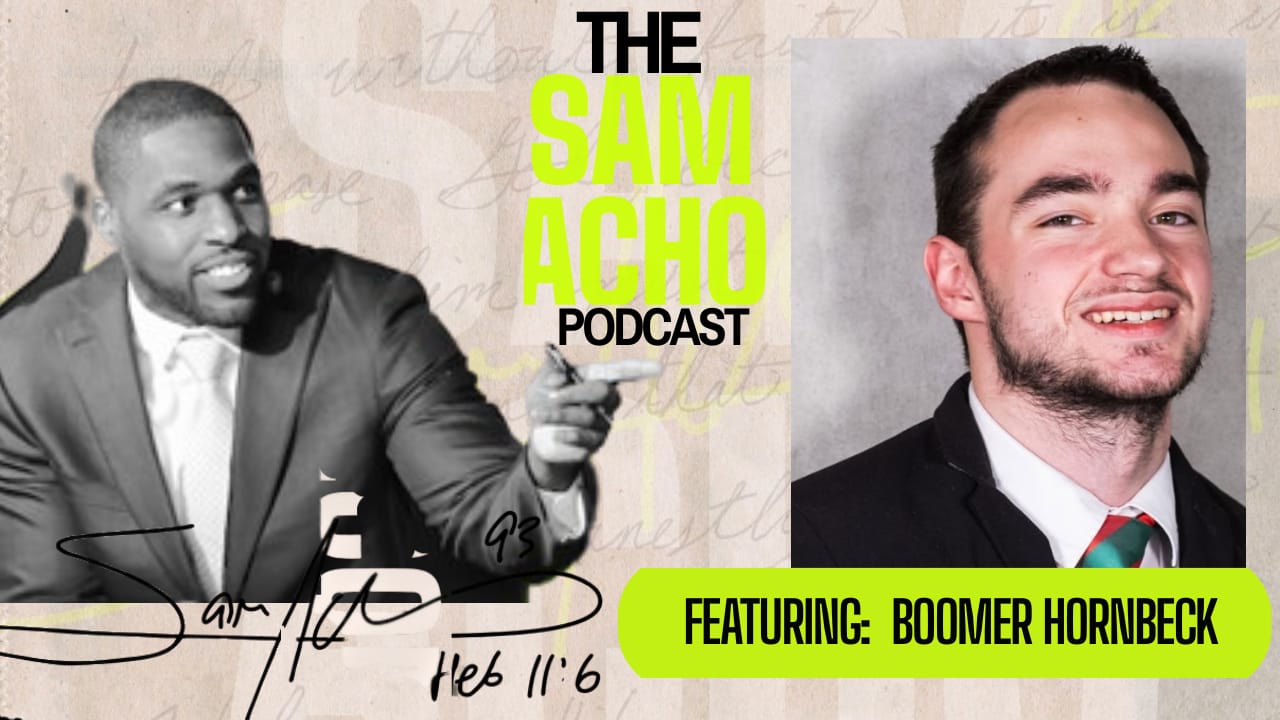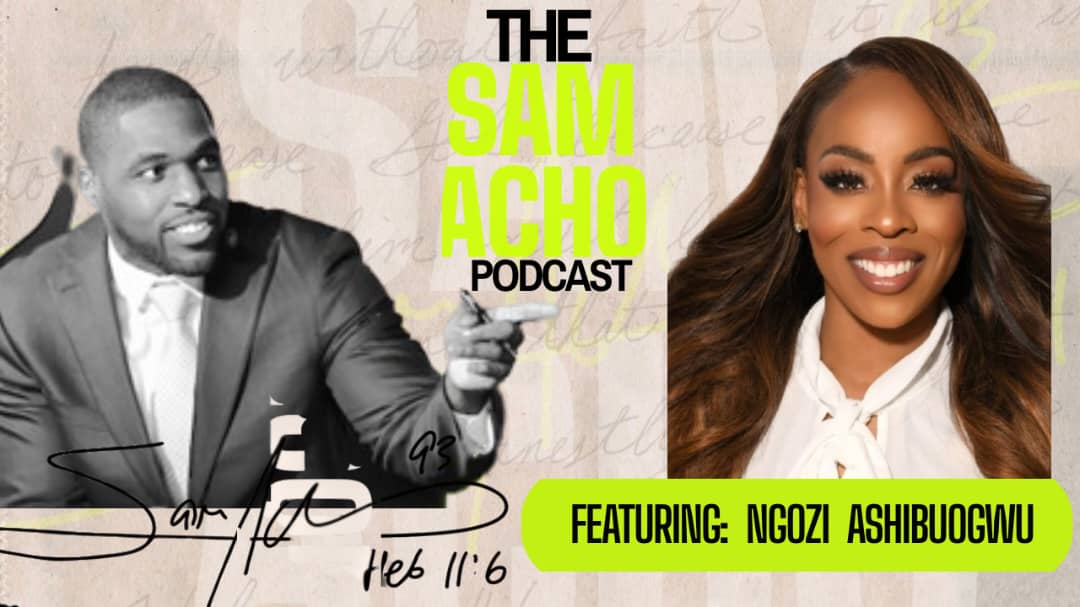You Are Enough: Thaddeus Bullard on Faith, Legacy, and Building a Family that Endures
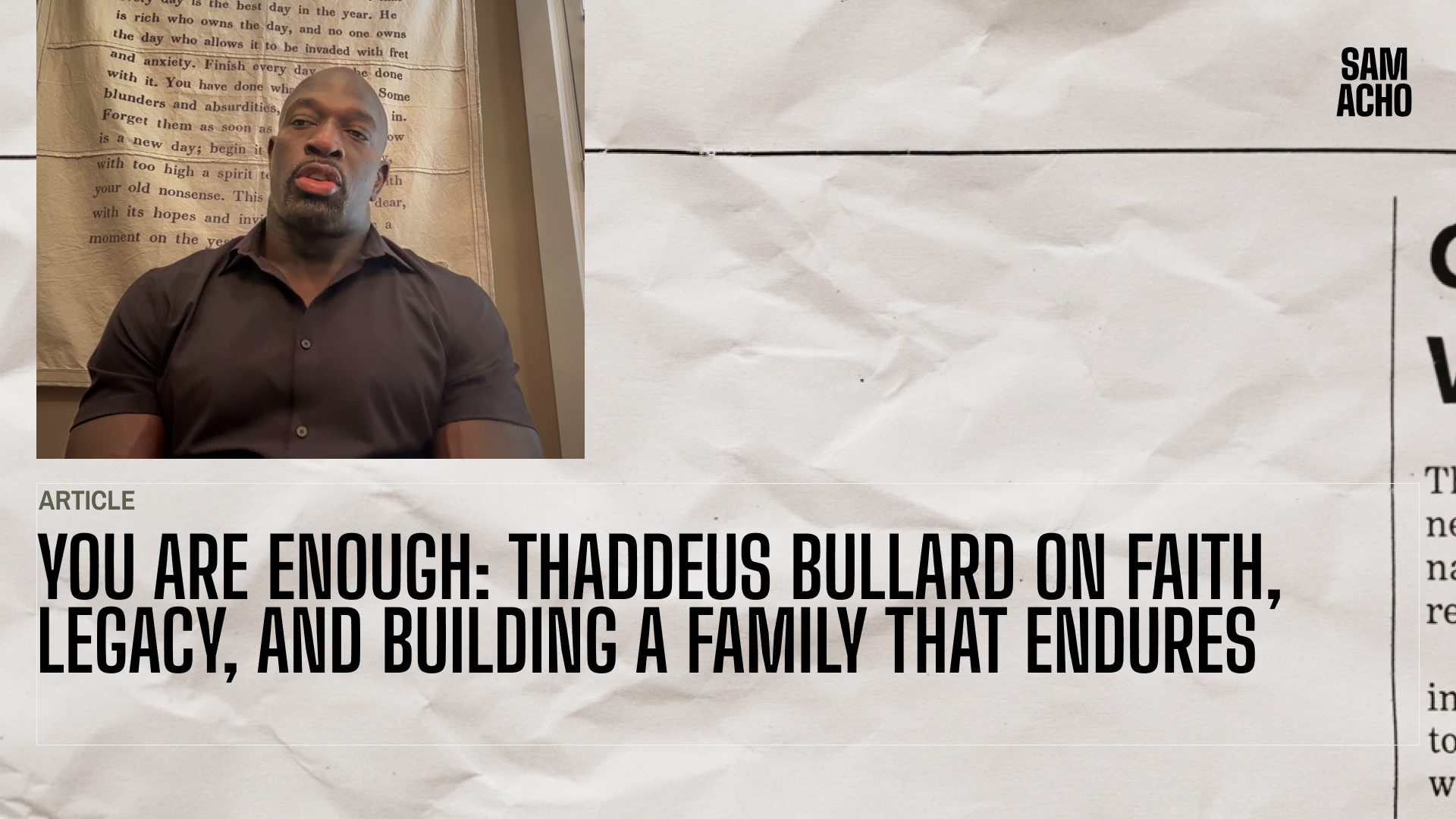
From labeled to loved: Faith that moves beyond easy answers
Thaddeus Bullard’s story starts on the outside, with odds stacked against him and a world not expecting much. “I was labeled a kid that would be dead or in jail by the time I was 16. And I believed that for a greater part of my young adult life.” Early on, those labels held power. But it was presence—not lectures or pep talks—that cracked open the possibility of something more.
The turning point was at the Florida Sheriff’s Youth Ranch after Thaddeus broke a contract and got into another fight. Instead of more punishment, staff sat him down and changed the narrative: “He said, I love you and I believe in you.” These weren’t empty words. He’d heard the word “love” before, but belief—real, personal belief—had never been spoken into his life like that. “It was always complete opposite. It was always you can’t, you won’t, you never will, et cetera.” Hearing someone say “I believe in you” gave Thaddeus something new to live up to. He describes himself as rebellious: when people tried to tell him what he couldn’t do, he’d find a way. Now, that drive was fueled by faith and growing confidence.
Faith for Thaddeus isn’t just about church or religious talk. He draws a hard line between “believer” and “person of faith.” “Once things go wrong in life sometimes, the believers they automatically start to doubt and they’re worrying and nowhere in the Bible does it talk about how you should succumb to those things… I’m a person that walks by faith and not by sight.” For Bullard, faith means movement. It’s showing up, even in rooms where nobody believes what you do, and loving people as they are. Faith isn’t proven by leading with scripture or super-spiritual language. “Sometimes people just want to talk. Sometimes people just want to be heard. And the way that you treat them and embrace them as a human being is probably one of the greatest God moments that they may experience.”
The right words at the right time came from all kinds of unlikely places. He remembers a conversation with a homeless man after football practice: “God’s going to use you to do some mighty things.” Thaddeus didn’t dismiss it—he kept that prophecy in mind, letting the possibility of purpose expand the way he saw his own future.
Growing up, Thaddeus saw faith as a checklist rather than a guiding force, but these conversations shifted his perspective. He began to see faith as a dynamic relationship that fueled his actions and decisions, far beyond any prescribed ritual. His transformation wasn’t an overnight revelation—it was a journey of gradual understanding and application of these lessons.
Every family is built, not handed down
Thaddeus is straight about his upbringing: “I didn’t grow up with the example that a lot of people grow up with, with a positive dad in the home…” Legacy and family weren’t gifts—they were goals. When a friend’s health left her worried about her daughter Leah’s future, Thaddeus didn’t just promise to check in—he asked, “What if I adopted her?” But he didn’t make the decision alone. He talked with his sons first. He says, “But I knew they would be fine with it because…” Already, their family had been shaped by seeing kids in need of safety and connection.
Raising Leah meant engaging a new set of dynamics, including her telling him directly: “Well, you know, I'm gay, right?” Thaddeus didn’t hesitate: “I don’t give a damn if you purple with streamers flying out of your ass. Like I’m not here to make you be a certain way. I’m here to help you be the best version of yourself.” And he’s got conditions—he doesn’t want anyone forcing religion, politics, or their own agenda: “As long as you don’t try to push that motive much like I don't want anybody to push Christianity on anyone…”
Their home stands on three non-negotiable rules—clear, strong, and rooted in principle, not preference:
Love and respect everybody you come in contact with. “You’re not going to like all of them and you’re not going to agree with all of them but you love them and you respect them.”
Don’t use the word “can’t.” “I was told my entire life what I can’t do, what I won’t do, how I’ll never be and it was all proven to be a lie.”
Be your best. “Some days 70% is your best, 30% is your best, but as long as you’re doing your best, you or anybody else can never be disappointed… That’s when you should be disappointed. That’s when you’re going to be disappointed because you didn’t do your best.”
Thaddeus is honest about the learning curve. “My daughter has given me so much introspective…even though she’s, you know, gay, she’s still a woman, you know? And that’s a different, women are different, you know what I mean?” Even as an athlete and ‘jock,’ Leah’s experiences and reactions force him to check his instincts, especially when he finds himself talking to her like one of his sons.
This is not a story of perfect parenting—it’s daily recalibration, humility, and making presence the priority. Thaddeus knows stability and trust are built over time, one interaction at a time. What matters isn’t keeping everyone the same, it’s keeping the standards high and the love unconditional.
The decision to adopt Leah became a defining moment for Thaddeus—proof that love transcends blood and that family is defined by action. He wants his children to understand the power of showing up and being consistent. Leah's presence in their family challenges Thaddeus to deepen his understanding of inclusion and acceptance, pushing him to grow alongside his children.
Transformation over transaction: Defining true legacy
Thaddeus Bullard isn’t just racking up credentials—he’s living with conviction. He’s been a national champion at Florida, a WWE Tag Team Champion, and an honoree in the WWE Hall of Fame. Still, he’s quick to say: “That’s what I do for a living. That’s not who I am for a living.” He refuses to reduce his identity to occupation or accolade.
Real legacy comes from a different metric. “Transactional things didn’t get me to where I’m at. Transformational things did. And I’m a transformational thinker when it comes to how I give…” That’s why he pours his energy into efforts where the impact can outlast any single donation—like turning around a struggling public middle school into a thriving beacon, the only one in the district with turf athletics, robotics, and a hockey rink. “Exposure leads to expansion. And when you expose people wherever they are from...it expands their mind, expands their thought process, and it expands their ability to think outside of their own surroundings.”
Bullard doesn’t shy away from naming the challenges in America, especially as a Black man. He won’t sign up for false patriotism, but he’s all-in on finding ways for his life to advance opportunity for everyone, not just his own.
The future for him—what he wants to hand down—is simple: “The greatest gift that we’ll ever give our children and our families is a great last name…When you’re dead and gone, how will people remember you? What will they remember you for? Will your last name be the bridge that people need to become better?”
He wants to set a foundation that outlives him—where family and community inherit more than a biography or a trophy case, but a reputation for opening doors and creating hope.
Thaddeus’s giving extends beyond his immediate circle. By investing in educational resources and infrastructure, he hopes to provide young people with opportunities that weren’t available to him. He envisions a legacy that not only uplifts his family but also empowers the generations to come, transforming entire communities.
“You are enough”: Truth for the next generation
Pressed by Sam Acho to answer “what is one thing the world needs to hear,” Thaddeus Bullard doesn’t hesitate: “You are enough.” It’s not a bumper sticker—it’s a rebuke to the world’s noise and the enemy’s tactics. “The world will tell you what you can’t do, how you can’t be, what you’re not capable of, what you’re not qualified for. And it’s a bold-faced lie. You are truly enough.”
He challenges the narrative that opposition in life is about what you currently possess: “The enemy doesn’t go after you for what you have...They wanna stop your future.” That’s what’s really at risk when people settle for the world's labels instead of fighting for their purpose.
Thaddeus measures life—not by status or headlines—but by who’s been elevated because of your presence, your hard conversations, your willingness to believe first. “There was a time in my life where I was very insignificant to a lot of people. And my life up to this point, from this point moving forward, is all about significance because success is for ourselves.”
For more than a decade, he’s watched names become legacies—sending hundreds to college, seeing dozens rise to professional ranks, and many more become leaders in their community. “I wasn’t raised with that… I had to build that for myself and it took a lot of people from a lot of different backgrounds to help get me to this space that I'm in now.”
That’s how you win without losing what counts. Be present. Be the one who believes first. Build a last name that bridges to something better. And never back down from the truth—the identity and future you’re shaping is already enough.
Listen, Learn, explore
Join Sam’s Journey Today.
Stay up to date with what sam acho is getting up to, his thoughts, new projects, and words of wisdom.


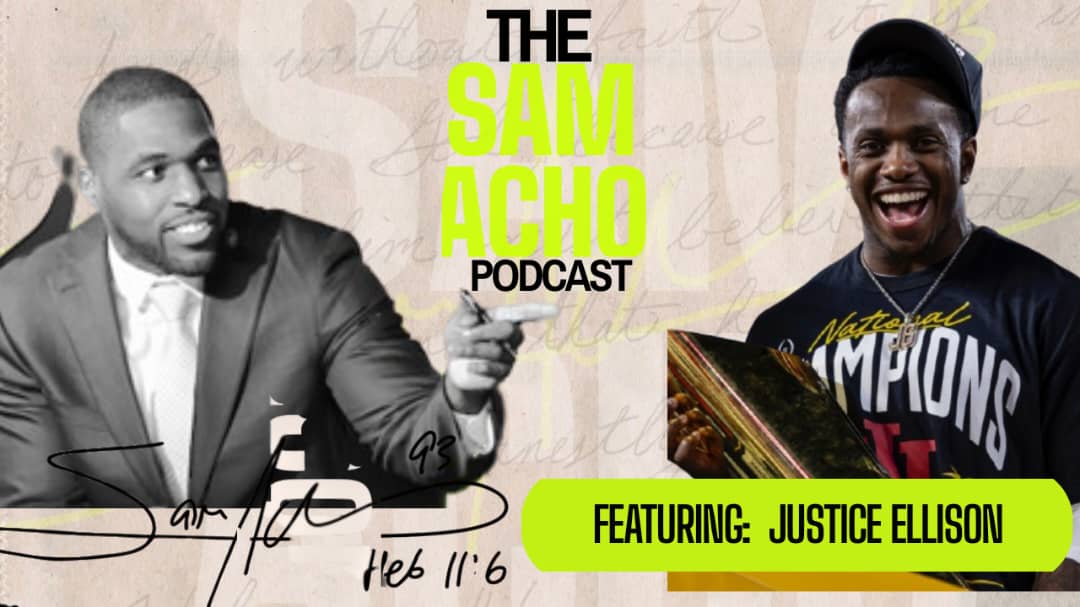
.png)
